As preppers, we all know that the best items to stockpile are the ones that have multiple purposes. Depending upon how long you’re planning for space can quickly become an issue, especially if you have a large family. Another reason that multi-use items are great is because if you have to bug out, you can carry less but still have what you need if you plan carefully.
Everybody has a list of common items that you should stockpile. Today, I felt creative and wanted to put together a list that you haven’t seen before, at least in one place. Here is our list of must-have multipurpose items to use for off-grid survival, in no particular order.
Tampons
OK, forget for a minute that you know what a tampon is. Clear your head of the gross-out factor and just concentrate on what the product actually is: a compacted wad of sterile, extremely absorbent cotton. Because they’re compact, you can store many of them in a small space and a few of them would take up very little room in your first aid kit.
The military has carried unscented tampons in their medic kits for decades. Here are a few uses:
- Obviously, feminine hygiene
- Barter
- Plugging bullet holes
- Stopping nosebleeds
- Unrolled, for wound dressing or packing
- Water filter to get out “floaters”
- Starting a fire
- The string makes a useable candle wick or soak the whole thing in wax for a small candle/fire starter
- Earplugs
- Fishing bobber (package with the tube inside)
- Packing an abscessed or broken tooth
Sewing Supplies
Oddly enough, we rarely see sewing kits listed on survival lists but if we experience a TEOTWAWKI event, you’re going to need one for many different reasons. I’m not talking about just a needle and thread: you need to have several different weights (and materials) of thread and very small to very large needles. Here’s why:
- Repair clothes
- Repair shoes
- Make clothes
- Repair tarps (waterproof thread would be good here)
- Repair damaged bug-out bags and tents
- Make tents from tarps or canvass
- Stitch wounds
- Barter
- Having the supplies and at least basic knowledge of sewing will give you a valuable skill that you can use or barter
Honey
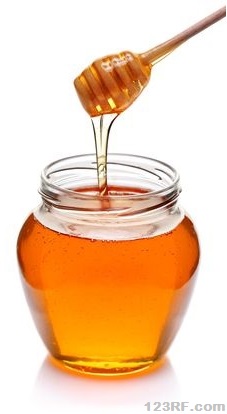
- Has vitamins and minerals so if you’re using a sweetener, honey is better than sugar
- Can be used as an antibacterial on wounds
- Is a great healing agent for wounds and helps keep the bandage from sticking
- Barter – sweeteners are going to be way up there on the list
- Excellent skin moisturizer (if your skin is so dry that it cracks, you’re going to have problems)
- Makes a great burn treatment because of the antibacterial properties and the moisturizing power
- Soothes sore throats
- When mixed with vinegar and water is an effective parasite remover
- Make fly/bug strips
Herbs and Spices
Whether you choose to grow your own, store them dried or both, herbs and spices are going to make post-SHTF life better in a number of ways. We also recommend buying a book on using herbs for medicinal purposes so that you can correctly mix your own concoctions in a pinch.
Remember that just because an herb is natural doesn’t mean that it’s safe in any quantity. We think that herbs should be stockpiled because:
- They can help you avoid food fatigue
- They’ll make excellent barter
- They have nutrients that improve the quality of your diet
- They can be used for a wide variety of medical purposes, depending on which spices you store.
It should be noted that many spices grow to useable size in just a few weeks so we also recommend storing seeds.
Ibuprofen and Acetaminophen
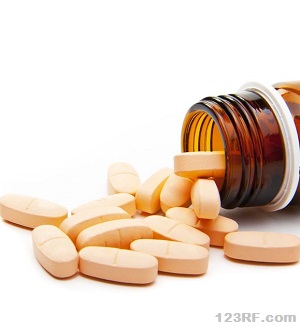
These two NSAIDs are going to be invaluable and rare (after a while) in a post-SHTF situation, so we highly suggest adding them to your stockpile. Because each one works better for different ailments, we suggest stockpiling them both.
- Quick relief from headaches and migraines
- Relieves dental pain
- Are anti-inflammatories that work well on arthritis and joint and back pain
- Relieves menstrual pain
- Helps recover faster from sprains and injuries and provides pain relief in the meantime
- EXCELLENT barter items!
- Reduces fever quickly (remember that a fever is your body’s way of killing disease, so unless the fever is extremely high, it may be better to let it rage for a day or two)
Spray Bottles and Empty Containers
Though these take up some space, you can safely bet that you’re going to need them in a long-term emergency. Here are a few uses:
Spray Bottles:
- Cleaning solutions
- Disinfectants
- Plant misters
- Use to hygienically apply medicinal solutions to wounds or sunburns
- Saves water
- Barter
Empty Bottles/buckets
- Water storage
- Make water filtration devices from plastic bottles
- Storing dried foods if there’s a sealed lid
- Floatation devices
- Solar lamps (bottles)
- Cut ends off of bottle and place over seedlings to save those small plants from frost
- Barter
Dental Floss
{adinserter usdeception}We constantly preach the value of paracord and we stand beside that, but people often overlook dental floss as a survival item. We won’t make that mistake. Dental floss doesn’t take up hardly any room and it has dozens of uses. Since it comes in both waxed and unwaxed, we’d suggest buying both. Here are just a few uses for dental floss, besides its intended use:
- Fishing line
- Repairing tarps or canvasses
- Tying up tarps for catching water or to build shelter
- Stitching wounds
- Shoe or boot repair
- Making a bow and drill to start a fire
- Making a snare or net
- Clothing repair
- Lashing your knife to a branch or wooden handle to make a spear (fishing or defense)
- Use unwaxed to lash your food to a spit to roast
- Staking plants
- Barter
Plastic Zippered Bags
You can store hundreds of these in practically no space at all and they have so many uses that they just HAD to make the list. We suggest stockpiling various sizes from the snack-sized to the gallon-sized.
- Keeping important documents dry
- Storing matches and other staples that must remain dry
- Place one over your shoes (or put your feet in them before putting your shoes on) to keep your feet warm and dry
- Keeping bugs out of foodstuff
- Storing clean wraps and bandages to keep them clean
- Collecting water
- Patching small leaks by taping the plastic over the leak on the outside
- Wound covering
- Sealing a chest wound
- Solar distillery for water
- Pillow (seal with duct tape)
- Place meat or perishables in baggie and store in snow or icy stream to preserve
- Store pine pitch or other sticky fire starters, etc. in your bag
- Barter
Notice that in addition to being extremely useful, these 8 multipurpose survival items will also be good for barter. That’s because most people aren’t going to think about them until they need them. They say that necessity is the mother of invention and if SHTF, that’s certainly going to be the case.
If you have other unusual multi-purpose items to use for off-grid survival or can think about other uses for the items above, please share them with us in the comments section below.


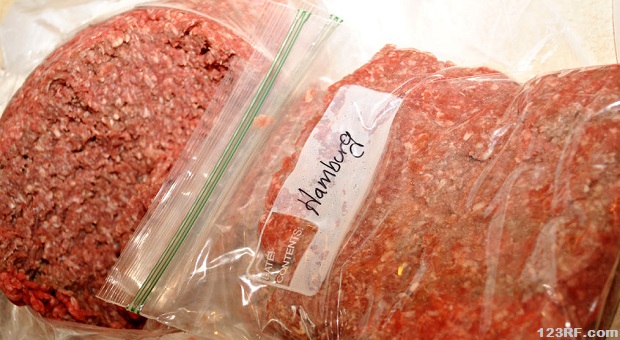

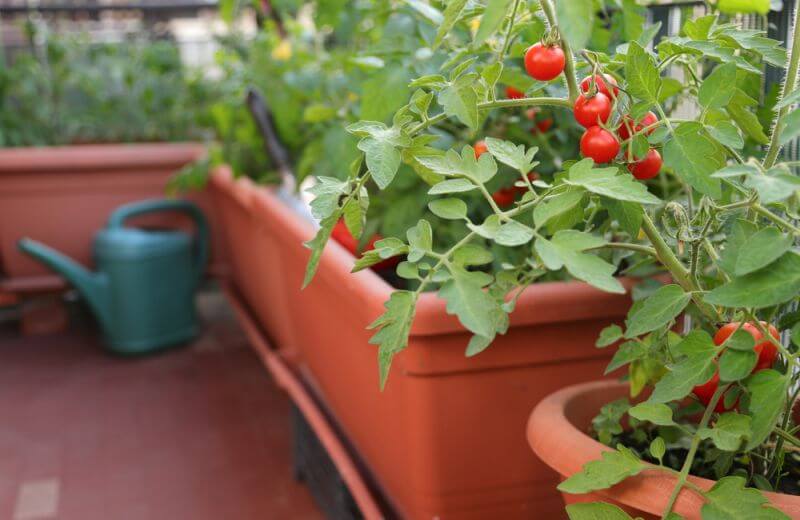
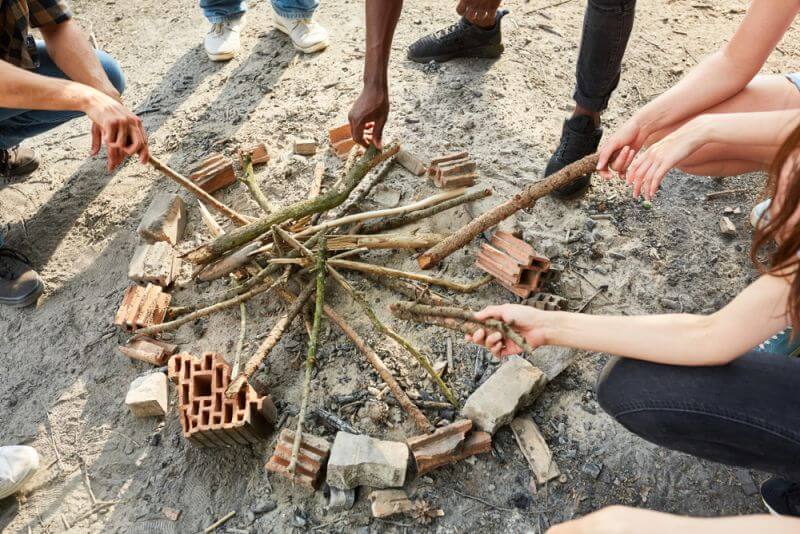

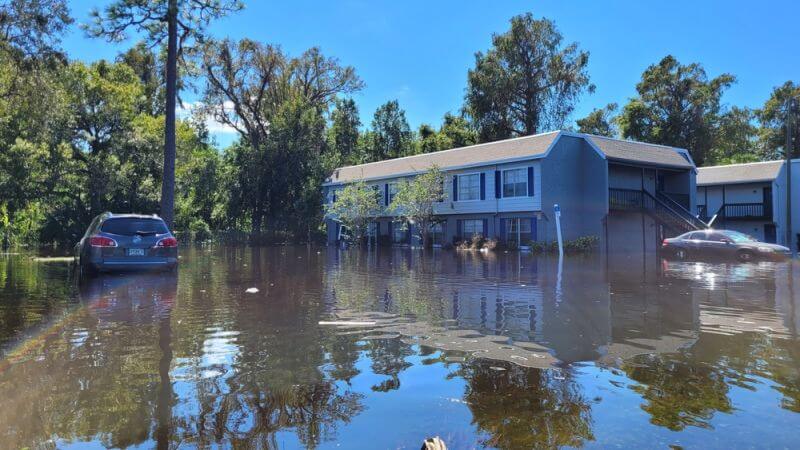

Bill Reed III | August 28, 2014
|
Despite the fact that toilet paper is bulky and not conducive to packing in any quantity in a bug out bag (removing the inner tube and flattening helps) I still have a sizable amount stored in my attic.
If the SHTF I’d prefer to avoid having the SHT hand!
J. Craft | August 28, 2014
|
I would suggest making room for a jar of petroleum jelly. Not only is it good for minor first aid, it makes a good fire starter combined with cotton balls, dryer lint, newspaper, dry leaves etc. It is easier to transport than liquids, such as oils.
Debbie in LA | August 28, 2014
|
Be careful about wearing zipper-type plastic between your feet and your shoes. I had to be outdoors in the snow (which we rarely get in Louisiana) for several hours, so I put plastic bags over my socks before putting on my shoes. My feet slipped so much that any movement was dangerous. Needless to say, I had to remove the bags. Another item that should be in everyone’s go-to box is duct tape. Although the adhesive does seem to break down and become sticky after a few years, I don’t think we could survive without it.
Sheryl | August 30, 2014
|
The plastic over the socks will always slip and slide. Try putting the plastic directly over your feet, as the plastic will stick to your skin.
Bob | September 2, 2014
|
Plastic bags next to bare skin will keep you feet dry temporarily. It will take a few minutes in cold weather for your feet to sweat, then you are in trouble! Socks not only provide a comfort barrier between your feet and shoes but they also absorb moisture from your feet and then wick it away up through the upper part of the sock that is exposed above the shoe or boot. The plastic would negate this moisture removal process and actually make your feet even colder and increase the chances for frostbite. Rubber boots w/socks is a much better solution. Use of a plastic bag on the outside of the shoe or boot, wrapped tightly with duct tape may due in a pinch, although I don’t know if even duct tape is tough enough to keep punctures from happening.
John Glover | August 28, 2014
|
Very good article. To carry more containers just crush the plastic ones flat and place the cap back on the bottle. When ready to use just blow the bottle back into shape. I have done this many times with store bought drinking water. The thinner containers work best. I have used them up to a dozen times before they start to leak. Petroleum jelly with medication in it works great. I buy the ones simular to vicks vapor rub. Great for cuts, chapped lips or anything else chapped, to ease breathing, etc.
Martin | August 28, 2014
|
Acetaminophen (Tylenol) is NOT an NSAID. It has zero anti-inflammatory properties. It is only useful for reducing pain and fever. Ibuprofen (Motrin) and aspirin are both equally useful for anti-inflammation, as well as for reducing pain and fever. So, acetaminophen masks the symptoms, while NSAIDS can be “curative” if the problem is inflammation. Aspirin has a fourth property, thinning the blood, so it is important for persons old enough for heart attacks, strokes, or blood clots. Acetaminophen has the worst LD50 (lethal dose at which 50% of people will die) … so never let it be stored near children.
roxanne | August 28, 2014
|
Did you know hydrogen peroxide
-kills yeast infections (mostly a woman prob…but this works way better than the expensive stuff which won’t be available anyway)
-kills toe fungus
-great for mouth wash ( get food grade)
-of course for cuts and some rashes rhat need oxygen to heal
-swishing some of the food grade helps fight/prevent gum disease.
Samnjoeysgrama | August 28, 2014
|
I try to concentrate on things I can’t make. I could probably make a knife from a file, but not scissors or a file. Needles. Magnifying glass (spotting tiny things in an eye or reading tiny print or making a fire). Lots of little things like pliers. Have a family game in the car naming all the important things you couldn’t (easily) make.
Samnjoeysgrama | August 28, 2014
|
Condoms. Old cemeteries are full of young women who died in childbirth. Be in control of when you have a child.
glenn douglas | August 28, 2014
|
thank you , glenn
Hans Roeloffzen | August 30, 2014
|
In Europe the first choice pain killer is paracetamol which is very cheap and goes with nearly all medications. It has no inflammation suppressing effect. Ibuprofen and other NSAID’s are known to give conflicts with blood thinners and some other drugs so be careful if you use them. If used for a long time NSAID’s are harmful for the stomach too so you will need something to reduce the acidity level then.
Sheryl | August 30, 2014
|
Another good thing to store is cloth baby diapers. Obviously, when TSHTF, disposable diapers aren’t good for anything once they’ve been soiled. Cloth diapers can be washed, and after said baby is potty-trained, the cloth diapers can be used for washing and cleaning. In a pinch, they can be disassembled and used to make clothing.
christi | September 1, 2014
|
Can openers, both types. The one that you punch holes in the top of the can with, most people use them to open evaporated milk cans.
Pingback:10 Off Grid Uses Of Ammonia And Sodium Bicarbonate | The Prepper Dome | November 19, 2014
|
Pingback:10 Survival Uses Of Ammonia And Sodium Bicarbonate | Survival skills, survival guns, survival guide | November 20, 2014
|
Pingback:Household Items To Use In A Medical Emergency - Part I | Survival skills, survival guns, survival guide | December 10, 2014
|
Pingback:Common Items To Use For Medical Emergencies (I) | TheSurvivalPlaceBlog | December 11, 2014
|
Great Grey | March 31, 2015
|
I would keep Dental Floss for its intended use as much as possible. Unhealthy teeth are serious health risk, known to cause heart infections that can cause the heart to stop or at the very least make you unable to work as hard as you need to.
Pingback:How To Re-Mineralize Water For Drinking | Survival skills, survival guns, survival guide | April 14, 2015
|
Pingback:16 Foods That Will Live Longer Than You | The Prepper Dome | June 22, 2015
|
Pingback:How To Use Natural Sunscreens To Survive Summer | Survivopedia | July 3, 2016
|
Pingback:How To Use Natural Sunscreens To Survive Summer | Prepper's Survival Homestead | July 3, 2016
|
Pingback:How To Use Natural Sunscreens To Survive Summer | | disasterdefense.us | July 4, 2016
|
Pingback:Using Natural Sunscreens To Survive Summer | | disasterdefense.us | July 5, 2016
|
David Hellmann | April 1, 2018
|
Excellent content. Good read. Thanks!